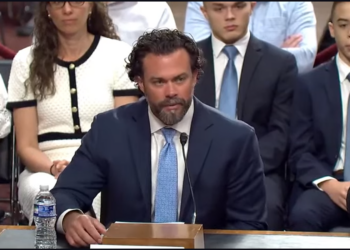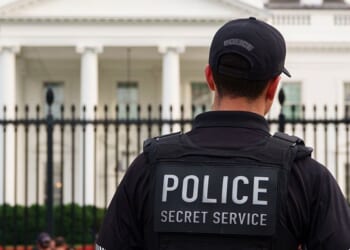In an embarrassing diplomatic setback, French President Emmanuel Macron and Saudi Arabian Crown Prince Mohammed bin Salman postponed a United Nations conference they were scheduled to colead in New York on Tuesday. Their plan for the General Assembly conference was to push the quick creation of a Palestinian state, even though the Palestinian terrorist organization Hamas runs Gaza and the Palestinian Authority, which runs the West Bank, bankrolls terror attacks on Israelis.
The real world — the imminent creation of an Iranian nuclear weapon — intervened. The conference was a power play by the French and the Saudis, along with their partners in the Arab League and Organization of Islamic Cooperation, to shove aside the United States and seize control over the future of the Middle East. It was a Palestinian-first scheme directly at odds with President Donald Trump’s hopes to expand Arab-Israeli rapprochement and finally end the roadblock to peace erected by violent Palestinian rejectionists for 75 years.
Macron told reporters on Friday that when “logistical” issues were resolved, the conference would be rescheduled “as soon as possible.” Furthermore, he would recognize a Palestinian state “whatever the circumstances,” along with “the security of Israel.” The circumstances and security assurances evidently consist of France and the U.N. standing by while Iran and its terrorist proxies target and kill Israeli civilians.
The postponed conference is ironically titled “High-level International Conference for the Peaceful Settlement of the Question of Palestine and the Implementation of the Two-State Solution.” Reference to a “Jewish” state is carefully avoided, let alone one with defensible borders.
At a June 11 preparatory meeting, French and Saudi diplomats spelled out the plan. There would be an “outcome document” setting out an “irreversible pathway” to Palestinian statehood. The document would be “action-oriented.”
This meant two things. Firstly, negotiations — a negotiated settlement between the parties in accordance with legally binding agreements — would be history. The U.N. majority will decide the answers. Though the General Assembly has no power to create a Palestinian state, the intent is to render this result rapid, irreversible, and unconditional.
And secondly, “action-oriented” is U.N.-speak for severe negative consequences in the course of imposing this agenda, such as boycotts, divestment and sanctions, or economic isolation and arms embargoes designed to devastate Israel.
The conference “outcome document” was set to be unveiled as a fait accompli, as the co-leaders announced it would be finalized beforehand. There would be no vote on the text and no negotiations during the conference.
At the same time, the French and Saudis feigned inclusivity and widespread support. They claimed broad input from U.N. working groups composed of states and lots of informal meetings and submissions from several actors, including multiple nongovernmental organizations and members of so-called “civil society.”
My organization is a U.N.-accredited NGO. We received no invitation to participate in informal consultations or to make submissions. Quite clearly, the conference will be a kangaroo court with an outcome reflecting the views of only those who agreed with the predetermined result. The most likely source of the list of approved NGOs and members of “civil society” was the U.N. Division for Palestinian Rights, which keeps a list of such non-state collaborators who are regularly invited to U.N. events to the exclusion of anyone deemed pro-Israel or pro-America.
The French and Saudi co-leaders revealed that they expected attendance by “world personalities” and were pushing heads of state and foreign ministers to descend on U.N. headquarters in New York. At the June 11 preparatory meeting, the vast majority of U.N. states attended, apparently indifferent to the Trump administration’s démarches not to participate.
Right up to the Israel-Iran flashpoint, the French and Saudis were also actively lobbying participants to announce recognition of a Palestinian state during the conference itself. In their words, they would “very much welcome” such announcements.
ISRAEL LOOKS TO US TO HIT IRAN’S FORDOW NUCLEAR FACILITY
The conference presents a major foreign policy challenge for Trump. But so far, the European Union, Canada, the U.K., the Arab League, and the OIC, including the Saudis and Qataris, seem to believe they have nothing to fear. So long as the United States pays the U.N. bills (including of the conference itself) and physically hosts the U.N. in its midst, it is taken for a paper tiger. The administration could take the opportunity provided by the pause to alter these dynamics.
If and when reconvened, this U.N. conference will hand terrorists a key win and fuel antisemitism on a global scale. There could not be a starker contrast between phony U.N. posturing about “peace” or “human rights” and the courage of the Israeli people forced to defend themselves and avoid nuclear war for everyone’s sake.
Anne Bayefsky is director of the Touro Institute on Human Rights and the Holocaust and president of Human Rights Voices.
















